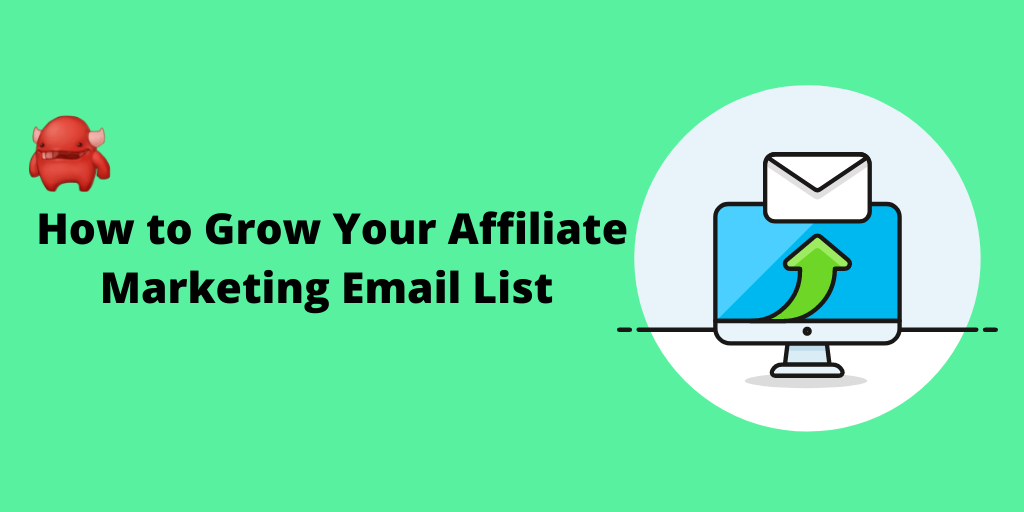What Factors Should I Take Into Consideration When Buying A Family Medicine Email Database?
For the most effective results from your outreach and marketing campaign, you need to consider a variety of key aspects. What you should consider is 1. Data Quality and Accuracy
Source of Data – Make sure that the information is gathered from reliable sources. This includes medical directories as well as licensing boards. Family medicine physicians’ email addresses must be current and relevant to your audience.
Verification procedure: Learn about the verification process of your provider. The email list should be maintained and regularly cleaned to eliminate invalid or inactive email addresses. Validated email addresses reduce bounce rates and increase deliverability.
Segmentation options Include segmentation options based on factors like geographical location (country or state) as well as the level of experience, practice size and specific interests (e.g. pediatrics, geriatrics or preventive medicine). Segmentation facilitates more targeted and targeted outreach, which can increase engagement rates.
2. Legal Regulations
Data Privacy Laws: Ensure the list complies with General Data Protection Regulation (GDPR) in Europe, California Consumer Privacy Act (CCPA) in the U.S., and other applicable data privacy laws. For regulatory purposes, it is important to ensure that the email addresses have been collected legally and consented to.
CAN SPAM Act Compliance: When you conduct emails within the U.S.A. ensure that you be in compliance with the CAN SPAM Act. This means you have to provide clear opt-out methods as well as not use misleading information or subject lines in your emails.
Opt-In Consent: Confirm the email addresses were gathered by opt-in consent. This signifies that family medicine doctors consented to receiving marketing emails from third party companies, ensuring the privacy of patients and decreasing the possibility of complaints about spam.
3. Provider Reputation
Reputable Provider: Choose one that has a long history of providing high-quality and reliable information. You can look up reviews and testimonials or case studies of the provider to make sure they’re reliable.
Transparency: Providers need to be transparent in how they collect information and when they update their data. If the company isn’t able to explain their data sourcing methods that’s an indication of fraud.
Customer Support: Search for providers that offer robust customer service. You may need help in tackling technical issues, segmentation of lists or making sure the list is in compliance with the rules.
4. Cost as well as Return on Investment (ROI)
Pricing Models. Different pricing models are provided by companies, including flat fees, pay-per-contact or subscription services. Pick a pricing structure which corresponds with your budget, while still ensuring that you get the most value for your money.
Refund Policy and Replacement Policy. The most reliable companies offer refunds or replacements for invalid or outdated email addresses. Be sure to read the terms of this policy prior to purchase to protect your investment.
Do not fixate on the cost by itself. While a list with a low cost might be attractive however, it could result in poor delivery and large bounce rates. It’s better to invest in a high-quality list that offers better targeting and greater engagement.
5. Data ownership, use and ownership
Single Use and Multiple Use Multiple Use: Clarify whether you can use the list in multiple instances or if it’s a one-time use only. Lists that allow multiple campaigns may be more valuable, particularly if planning ongoing outreach.
Exclusive vs. Shared Lists: Determine whether the list is exclusive to your company or if it’s being offered to a variety of buyers. Exclusive lists could help to reduce the number of people who are over-saturated.
6. Data Integration and Format
CRM Compatibility. Check that your email lists are in the format that will work with your CRM software or marketing tool (e.g. CSV, Excel). This ensures smooth integration and easy use.
Ease of use: The list should be easy to sort, segment or organize based on your campaign’s criteria. This will allow you to streamline your message and targeting efforts.
7. Ethical Questions
Relevance: Family physicians are extremely busy, so be sure that your outreach is relevant for their profession. Beware of sending irrelevant or generic messages as they can harm your brand’s reputation and result in lower engagement or a spam complaint.
Avoiding Spam Tips Send out emails with care and refrain from excessive emailing. Sending too many emails to recipients or offers that aren’t relevant can lead to unsubscribes from your list as well as the reputation of your sender being damaged.
If you want to make sure that your outreach is successful, think about the following aspects when buying an Family Medicine Email List: Quality of data, legal compliance and provider credibility. Make sure you are using segmented verified data, that is compliant with privacy laws. The list should also be in line with the intended group of people. By investing in a top list and sending relevant messaging, you will increase the number of people who engage and increase your return on investment. Have a look at the recommended family medicine email list for blog guide.
What Should I Think About Prior To Purchasing A Data Appending Device?
It is important to take into consideration multiple factors when evaluating the services that offer data appending in order to make sure that the service improves the quality of your existing data while still maintaining compliance, accuracy and ethical standards. When you add information that’s lacking, such as an email address, phone number address, or demographic detail, you can enrich your database. When buying data appending it is important to consider a few important things to take into consideration: 1. Accuracy of data and data quality
Source of Data – Ensure that the provider of data is using high-quality and reliable sources, such as databases, public records and opt-in directory. The most trusted providers obtain information from reliable sources to ensure that the information appended is accurate and relevant.
Verification process: Find out whether the service uses rigorous verification and validation procedure. This helps ensure the data is up-to-date, accurate and appropriate to your needs. Providers should include regular clean-up and updates to the data as part of their offerings.
Match Rate: Different providers offer different match rates, that is, the percentage of your records which can be enhanced with new data. It is recommended to take an equal balance between high data accuracy as well as high match rate.
Customization: Make sure the service provider offers customizable solutions for data append. This may include adding different types or data, including demographics and firmographic data, as well as information about behavior.
2. Data Security and Privacy
Compliance with Regulations Data appending is the handling of personal information. It is essential that this service complies to data protection laws such as General Data Protection Regulations (GDPR) as well as California Consumer Privacy Acts (CCPA) and other privacy laws. Data appended must be collected, used, and processed legally in order to avoid penalties.
Consent management: Verify that the information you’re adding comes from individuals who have given their explicit consent to share their personal information. Do not choose data providers that employ unsafe practices or violate the user’s privacy.
Data Security: Make sure that your provider has strict data security measures in place to safeguard the confidentiality and integrity of both your existing database as well as any information you add to it. This includes secure data transfer protocols as well as encryption and access controls.
3. Provider Reputation
Reputable Vendors – Select an organization with an established reputation for providing accurate and reliable data appending services that comply with. Review their reviews, testimonials, or case studies to evaluate their performance. A well-established vendor will be more likely to offer top-quality services, and ensure the compliance of legal requirements.
Industry-specific specialization Certain service providers have a focus on certain industries, for example healthcare, retail or finance. If you’re in a niche, find a vendor who has experience and knowledge in your field. They can provide you with specific solutions that are tailored to your specific requirements.
4. Costs and Returns on Investment (ROI).
Pricing Model Appending Services for Data typically offer various pricing models that include per-record prices or flat-rate fees for batch updates. Ensure you understand the cost structure and how it is aligned to your budget. Be cautious of very low-cost options since they could indicate poor quality data.
Determine your ROI potential by incorporating information. A good service should improve engagement, conversion rates, and marketing performance. Comparing the cost of a service versus the benefits you are likely to see from having better and more useful data is an effective method to evaluate.
5. Appending and Data Types
Take note of the types of information that you’ll need to be included in your database. Common types of data include
Email addresses are crucial to emails for marketing campaigns.
Phone Numbers: Essential for sales outreach or Customer Support.
Demographic information is useful for segmentation as well as targeted marketing.
Firmographic data is crucial for B2B firms that are targeting businesses based on their revenue, employee size or industry.
Social Media Profiles – Some companies offer the possibility to append handles for social media. They can be helpful in your social media and digital marketing strategies.
6. Data Integration and Format
Compatibility. Check that the information you upload is compatible with any tool or systems you employ for example, your customer relationship management system (CRM), marketing automation software or other applications. The most common formats are CSV, Excel, or API integration, which should allow for easy data import and use.
Data Cleansing and Enhancement A good provider would also provide data cleaning as an appending service. This includes correcting inaccuracies or duplicates, as well as eliminating old records. Data enrichment goes beyond just adding data. It enhances the quality of your existing data.
7. Ethical Considerations
Transparency: Providers should be transparent about the source of the appended data as well as how they are collected. Companies that append data to ethical standards will implement policies on the sourcing of data and the use it makes.
Make sure that any information you append such as email addresses or phone numbers is not to be used in a spammy manner. Utilize the added information in a responsible way. Be sure to adhere to the best practices, such as offering opt-outs and ensuring privacy.
Conclusion
Concentrate on the data’s quality and legal compliance as well as the reputation of the provider when buying a data appending. Pick services that offer secure, validated data that complies privacy regulations such as GDPR as well as CCPA. Take into consideration the long-term returns on investment of investing into accurate, enriched data. The right service provider can make a significant difference to your marketing strategy and business performance. Take a look at the recommended data appending services for more recommendations.
